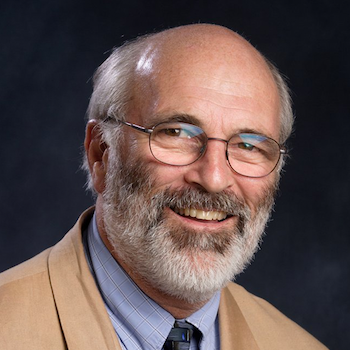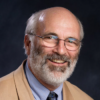Back to series



C.S Lewis: Disciple of Head and Heart
VOLUME 6 NUMBER 1 ISSUE OF BROADCAST TALKS (PDF)
BROADCAST TALKS presents ideas to cultivate Christ-like thinking and living. Each issue features a transcription of a talk presented at an event of The C. S. Lewis Institute. The following is adapted from a talk on Faith Is a Heart and Mind Matter - C. S. Lewis' Discipleship as an Example delivered by Jerry Root on August 29, 2020, at The City Gates Church, Fairfax, VA, as the keynote address of Looking Back, Looking Forward, a celebration of the 20th anniversary of the C.S. Lewis Fellows Program.
|
C.S. Lewis wrote in a book called Arthurian Torso that the first problem in life is how you put the stone in the shell. The image is taken from Wordsworth’s “The Prelude,” where a Bedouin shepherd is walking along with a stone and a shell. The stone represents reason, and the shell represents the longings of the heart. And Lewis saw that there was a division, and how do you put these things together? Sin Divides UsWhy is it a problem? Well, basically it’s a sin problem. If you look at the definitions of sin given in Scripture, all of them seem to indicate that sin basically is man playing god of his own life. Romans 3:23, “For all have sinned…” The Greek word for sin is hamartia; the doctrine of sin is called hamartiology. The archer takes the arrow from the quiver, locks it in the bow, shoots it, if it falls short of the mark, it was a sin. “For all have sinned and fall short of the glory of God.” We assumed the position we weren’t qualified for.
Lewis saw this division in his own life. It was prompted in part by the death of his mother when he was young; he had a deformity in his thumbs; he was mad at God for his awkwardness. He became a pessimist; he didn’t have the patience in his early life to recognize that while his thumbs prevented him from making things with his hands because he was awkward, it drove him to using pen and paper and writing about things. And God was using it even from his childhood to develop in him writing skills, and we are all beneficiaries of that. Nevertheless, he saw evil in the world. He was mad at God. He said, I didn’t believe in God and I was mad at Him for making the world, and he said, I didn’t see the incongruities in my thinking. He became an atheist. With his atheism, he had to find a worldview that would support that atheism, and he became a materialist. I encountered a materialist who I think once captured for me something of Lewis’s sentiment at that time. I had a student at Wheaton College. Her childhood friend was a student at Brown University, and her spring break was different from Wheaton’s spring break. My student said, “My best friend is coming to visit with me. I’m going to bring her to your C.S. Lewis class. Would you talk with her about spiritual things afterward? She’s an atheist and a materialist.” I said that I’d be happy to. They came up after class, and I said, “Tell me about this friendship you have. It’s really great that you’ve had a friendship over the years.” I talked about that and I said, “She says you go to Brown University. You must be very bright. What’s your major?” This woman said, “I’m a biochemistry major.” And I said, “Well that’s more impressive than ever because that’s a very challenging major. But we talked about spiritual things today. What did you think about that?” She said, “Well frankly, as a biochemist” — I thought that was maybe a little premature since she was only a sophomore — “as a biochemist, I live by the principle that if I can’t perceive it empirically, I just don’t buy it.” This is a head separated from the heart. I said, “Let me see if I’ve got you right. You live by the principle that if you can’t perceive something empirically, you just won’t accept it.” She said yes. I said, “Would you please set forth that principle empirically for me?” I hope you see the incongruity. She saw it for the first time, and she started freaking out. She said, “I never saw the incongruity, the contradiction in my own principle. Why, everybody at Brown University believes this.” I said, “No, no, no. There are Christians at Brown University too. You’d be surprised. They kind of get everywhere. And plus, to be honest with you, I’ve met many materialists who wouldn’t articulate their position that way.” I said, “Don’t get me wrong. John Polkinghorne at Cambridge University had a degree in physics and a degree in theology, pastored a church while he was the president of one of the Cambridge colleges. He said, if you ask the scientists why is the kettle boiling, the scientists would tell you: heat from the burners agitating the molecules and causing the kettle to boil at 100 degrees centigrade. That’s an answer that the scientists can give you from the empirical. But you could also answer the question: I wanted a cup of tea, and would you like one too? By mere scientific investigation, you could never give the second answer. And then I said to this young woman also what Mortimer Adler, the philosopher at the University of Chicago, observed: In four generations, we’ve gone from saying, That which is measurable is good for science, to saying, That which is measurable is the only thing that matters. Something in us has died, and there’s a separation of head and heart at that particular point. And then I said to this young woman, “Listen, we’re at a liberal arts college here. The liberal arts recognize that there’s need for conversation, to unite with other people. We love the sciences, and we love what the engineers have done to apply them because our lives are better because of that. But we also love the social sciences. Cultures are always moving; they’re always changing. If we want to understand those cultures, we listen to the social sciences, we include them in the conversation. And not only that, we listen to the fine arts. J.R.R. Tolkien, Lewis’s friend, said the fine arts show us that humans are made in the image of a creator, and we like this created activity. “And furthermore, we love the humanities. The study of human thought, philosophy, the study of human experience, history, and the study of human literature. And we see things that percolate and explode actually to the surface at different times in history, and they flare up like Fourth of July fireworks, and then they turn to ash. But we see some things that percolate every generation, over and over again. These are very human things. They remind us of something very significant about ourselves.” I said to this young woman, we want the discussion. We don’t want it co-opted by the sciences, but we want to include the sciences. It was interesting. She came back the next year to class. I said, “How are you?” She said, “I’m an agnostic now!” I said, “That’s progress!” God Calls Each of Us Uniquely
He says it’s love. It’s not love. It’s just chemistry. And Lewis bought that. He was looking for a rationalization for a particular place in life, his atheism. And then all of a sudden Lewis thought about it and thought, well, wait a minute. The materialist wants me to believe his explanation is a true belief, but if the lovers can’t say love, the materialist looks at the lovers, they project an image on his retina, which travels along his optic nerve, stimulates his brain, causes a secretion of particular hormones, he says it’s an answer or an explanation. If the lovers can’t say love, he can’t say explanation either. Lewis said he discovered reason cannot be mere cerebral biochemistry, and reason cannot stand on its own. It has to be balanced. Well, the interesting thing is that the other hemisphere of Lewis’s life at this time was that he had this experience of the heart! Deep longings of his heart! He wrote, The imaginative man in me is older and more continually operating. He writes in his autobiography that longing was awakened in him in his early childhood. He once wrote in Surprised by Joy that he “never saw a beautiful building nor imagined that a building could be beautiful.” I was giving lectures in Belfast years ago. The people who arranged the lectures knew the people who owned Lewis’s childhood home. And this woman gave me two and a half hours to climb around that house, look out the windows, see what he saw, and so on. It was one of the most beautiful houses I had ever seen in my life, stunningly beautiful! And I thought back, what was Lewis talking about that he “never saw a beautiful building nor imagined that a building could be beautiful.” He said, My first experience with beauty was when my brother brought a toy garden into the nursery, and I looked at it and something awakened in me. He said, “What the real garden had failed to do, the toy garden did.” What did he mean by that? It’s basically this: that God calls each of us uniquely, in a context, because he’s wooing us to himself. Some are wooed intellectually. Some are wooed romantically, by issues of the heart. Nevertheless, he had the toy garden, he saw the Hollywood hills in Belfast, off through his window. His little feet when he was seeing those hills were too small to take him that far, but he longed for a far-off place. He read Norse mythology, and he longed for northernness. He read Phantastes by George MacDonald, and his longing was awakened even more, and the dominant longings, it’s not an exhaustive list, but the dominant longings in his life were a longing for place, a pilgrim longing, the kind of longing that we see captured in Hebrews 11: Abraham went out from Ur of the Chaldees for he was looking for a city which has foundations whose architect and builder is God. Lewis, who read the classics, saw it in the longing of Ulysses in The Odyssey. He just wants to go home to his wife Penelope in Ithaca. Or the longing in The Aeneid that Virgil writes when Aeneas longs for the city of his birth, Troy, that’s been destroyed, and the longing for Rome, the city that he’s going to one day build. There is something in each of us, where G.K. Chesterton says we’re pilgrims in our own home and every time we lay our head on our own pillows we long for our true home. And there was the lover longing. Lewis saw this in Dante’s Divine Comedy, where Beatrice, Beatrice! comes and guides Dante through the last bit of his pilgrimage, from the end of the Purgatorio into the Paradiso to the very threshold of the vision of God. And Dante writes: “She turned to look but not at me. She turned to the eternal fountain.” What he’s trying to say is that all human loves, as great as it is, are ultimately echoes of the archetypal love. We are God’s first love. He should be our first love. He loves us intensely. As a matter of fact, when C.S. Lewis’s wife, Joy, died and he then wrote A Grief Observed, do you know what the last words are in that book? They’re in Italian: She turned to look, but not at me. She turned to the eternal fountain. Relational interests are driving us toward the archetypal relationship with God himself. And then there was a longing, Lewis said, that was awakened by nature. The romantic poets would write about nature. But if they were like Wordsworth, they were recognizing as they got older that they became more and more jaded, and Wordsworth didn’t like it. He wanted the lost innocence of youth restored. He wanted to be remade. He wanted his brokenness fixed. Lewis got all this. But if the materialist Lewis was right, his longing, while fascinating, had nothing to do with reality. But when Lewis’s materialism collapsed, the longing began to haunt him once again. FriendshipsHe had friendships, exemplified by the late-night talks Lewis had with J.R.R. Tolkien and Hugo Dyson. Lewis writes about friends. He says that your first friend is the person who reads all the same books you read and gets the same things out of them. That’s the person who lets you know that you’re not crazy; what you thought about this book has merit. Your second friend is the person who reads all the same books you read and gets something completely different out of them; that second friend is a good person because they develop the dialogical in you and you learn to debate and think and your thinking grows through that. But then he says there’s always room for a community of friends that are necessary. Lewis had been in a literary group called the Inklings. It included J.R.R. Tolkien; Charles Williams; Lewis’s brother, Warren (or Warnie); Nevill Coghill the great Chaucer scholar; and so on. Lewis said in Experiment in Criticism: My own eyes are not enough for me. I would see what others would see, I would read what others have written. Even that’s not enough for me. I would read what they’d imagined. Even that’s not enough for me. He said, I regret that the brutes cannot write books. I would gladly see how the world presents itself to the eye of a mouse or a bee or how it comes charged to the olfactory sense of a dog. Out of this community of friendship Lewis now has the longing and the quest to understand, and here comes Tolkien in this late-night talk. They’re talking about myths, and Lewis’s love of myths. Lewis liked the myths. But Tolkien says, Why is it that you like all the great myths but you are not interested in the one myth where God comes down and woos us to himself and it reports itself to be historic? Union of Head and Heart
But he said in fact that Shakespeare could have written himself into the play as an author and made the introduction between Shakespeare and Hamlet possible, and he says I think that’s what happened in the incarnation. All of a sudden, in Christ he saw this union begin to come together. And he began to see that there could be a union of head and heart and the consequence of that is with the union of head and heart. With this wholeness came a sense of purpose and mission as well. The first book Lewis wrote after his conversion was called The Pilgrim’s Regress, an allegorical apology for Christianity: reason and romanticism, head and heart are coming together. It was an apologetic book, it was missional. He was trying to help other people understand these things in their own life and bring them to faith. He started in his teaching to have a difference as he stood before his Oxford University students. In Rehabilitations, there’s an essay on the English syllabus. There he says to his students, we have fulfilled our whole duty to you if we could help you see some given tract of reality. But the reality that he’s calling them to is not the reality of the materialist. Lewis was a faith-integrated, liberal arts scholar. He wrote, “I believe in Christianity as I believe that the Sun has risen, not only because I see it, but because by it I see everything else.” And the reality he wanted these students to see was a reality where God’s presence was manifest in the world he had made. And not only that, he writes what I think is the most important thing in all of his books: “Reality is iconoclastic.” I have an image of God that may be helpful in the moment. But if I hold too tight to it, that image becomes an idol and God, as Lewis says, always kicks out the walls of any temples we build for Him because He wants to give us more of Himself. You look at this reality, and Lewis opens more than a wardrobe door. It’s missional. He wants us to see the display of God’s glory in the world around us. He started ministering during World War II to the Royal Air Force chaplains. He was training the chaplains how they could present the gospel to these men whose lives were being lost during World War II in the battle for Britain in the airs over England and the English Channel. Lewis did this because he wanted people to know Christ. He would preach at various churches and speak on the BBC, and we all know about Mere Christianity that came out of his BBC talks. Again, this was all missional. Head and heart come together, and something awakens in us. Something explodes. Something happens in us whereby we want others to know God as well, this One who could bring wholeness to our lives. He was engaged in going to factories and speaking at open forums to people who had questions. Lewis’s Oxford academic is leaving his post at Magdalen College Oxford to go into factories to speak to hard-working people because they mattered. His apologetic work, popular apologetics, his letters — he answered every letter that people wrote to him, thousands of letters, people said, You’re wasting your time writing these letters. He said, Maybe so, but these people matter, and I want them to know. He also was magnanimous. His charity grew out of this union of head and heart. I think it was Tolkien who was with him one time when some panhandler on Broad Street in Oxford came up to Lewis and asked him for some money. Lewis just emptied his pockets and gave it all to this guy who went ambling off. Tolkien said, Why did you give him money? He’s just going to drink it. And Lewis said, Yeah, I know, but if I kept it I would just drink it. There was a magnanimity in him and his students. We know the stories of Sheldon Vanauken and Harry Blamires, and then he preaches a sermon, “The Weight of Glory.” He says, “There are no ordinary people. You have never talked to a mere mortal.” Every person you meet will one day be an everlasting glory or an everlasting horror. The weight of glory is that each of us has a responsibility to try and nurture and nudge people toward that everlasting glory. That is the mark of wholeness in our lives. And so, consequently, Lewis was affected by people. He was benefited by the lives of people who ministered to him. And he proved a good steward of what was done. It was the union of head and heart, rigorous thinking, deep longing that broke forth into worship and adoration. When these two things came together, there was glorious ministry. That’s C.S. Lewis, the disciple of head and heart. [Videos of this talk and other parts of Looking Back, Looking Forward, a celebration of the 20th anniversary of the C.S. Lewis Fellows Program, are available Here]
|
|||
 |

Jerry Root
Professor, Christopher W. Mitchell Senior Fellow for C.S. Lewis Studies Jerry Root is the Christopher W. Mitchell Senior Fellow for C.S. Lewis Studies at the C.S. Lewis Institute; Emeritus Professor of Wheaton College in Wheaton, Illinois and a visiting Professor at Biola University. He received his Ph.D. from the Open University through the Oxford Centre for Missions Studies. Jerry has nine published books, as well as numerous articles and publications about C. S. Lewis and evangelism in other books, journals, and periodicals, as well as read numerous academic papers at various academic venues. Recently, he published, Splendour in the Dark, a book about C. S. Lewis’s narrative poem Dymer (the book also includes Lewis’s 100-page poem). Jerry has lectured on Lewis topics at 79 Universities in 19 different countries.
 COPYRIGHT: This publication is published by C.S. Lewis Institute; 8001 Braddock Road, Suite 301; Springfield, VA 22151. Portions of the publication may be reproduced for noncommercial, local church or ministry use without prior permission. Electronic copies of the PDF files may be duplicated and transmitted via e-mail for personal and church use. Articles may not be modified without prior written permission of the Institute. For questions, contact the Institute: 703.914.5602 or email us.
COPYRIGHT: This publication is published by C.S. Lewis Institute; 8001 Braddock Road, Suite 301; Springfield, VA 22151. Portions of the publication may be reproduced for noncommercial, local church or ministry use without prior permission. Electronic copies of the PDF files may be duplicated and transmitted via e-mail for personal and church use. Articles may not be modified without prior written permission of the Institute. For questions, contact the Institute: 703.914.5602 or email us.
-
Recent Podcasts
Ralph Waldo Emerson’s Philosophy and Influence
by David George Moore on July 26, 2024Ralph Waldo Emerson was a gifted nineteenth century...Read More
-
The Side B Stories – Nate Sala’s Story
by Jana Harmon, Nate Sala on July 19, 2024
-
Terrorism Through the Eyes of Faith
by Dennis Hollinger on July 12, 2024
-
Recent Publications
Hasn’t Science Proven That Belief in God Is an Outdated Superstition?
by Sharon Dirckx on July 1, 2024Many assume that scientific practice and belief in...Read More
-
Has the Bible Been Corrupted as Some Muslims Claim?
by Andy Bannister on June 1, 2024
-
Seeing Jesus Through the Eyes of Women
by Rebecca McLaughlin on May 15, 2024
0
All Booked
0.00
All Booked
0.00
All Booked
22194
C.S. Lewis’s The Abolition of Man Live Online Small Group 8:00 PM ET
https://www.cslewisinstitute.org/?event=c-s-lewiss-the-abolition-of-man-study-course&event_date=2024-10-02®=1
https://www.paypal.com/cgi-bin/webscr
2024-10-02

Next coming event
Days
Hours
Minutes
Seconds
C.S. Lewis’s The Abolition of Man Live Online Small Group 8:00 PM ET
On October 2, 2024 at 8:00 pmCategories
Speakers

Jerry Root
Professor, Christopher W. Mitchell Senior Fellow for C.S. Lewis Studies
Team Members

Jerry Root
Professor, Christopher W. Mitchell Senior Fellow for C.S. Lewis StudiesJerry Root is the Christopher W. Mitchell Senior Fellow for C.S. Lewis Studies at the C.S. Lewis Institute; Emeritus Professor of Wheaton College in Wheaton, Illinois and a visiting Professor at Biola University. He received his Ph.D. from the Open University through the Oxford Centre for Missions Studies. Jerry has nine published books, as well as numerous articles and publications about C. S. Lewis and evangelism in other books, journals, and periodicals, as well as read numerous academic papers at various academic venues. Recently, he published, Splendour in the Dark, a book about C. S. Lewis’s narrative poem Dymer (the book also includes Lewis’s 100-page poem). Jerry has lectured on Lewis topics at 79 Universities in 19 different countries.


 It says in 1 John 3:4: “sin is lawlessness”. Nomos is the Greek word for law. Here the word is not antinomian; it is anomos, without law. It’s anarchistic. It’s every man playing god of his own life. Well, anarchists make bad community people. Consequently, sin divides us. It not only divides us from God; it divides us from one another; it separates us from nature. Not only that, we can see that sin separates the work of head and heart, and sin even separates the flesh and the Spirit.
It says in 1 John 3:4: “sin is lawlessness”. Nomos is the Greek word for law. Here the word is not antinomian; it is anomos, without law. It’s anarchistic. It’s every man playing god of his own life. Well, anarchists make bad community people. Consequently, sin divides us. It not only divides us from God; it divides us from one another; it separates us from nature. Not only that, we can see that sin separates the work of head and heart, and sin even separates the flesh and the Spirit. Lewis as a materialist had his moment of disequilibrium. The social scientists tell us that all growth is preceded by a moment of disequilibrium. My present conceptual framework isn’t sufficient enough to take in the new data. And Lewis had his moment. He believed this; he writes about it in Miracles and in Surprised by Joy. He’d had this place in his life where he thought if a man looks at a woman and sees her, he doesn’t really love her. He may say it’s love, but she just projects an image on the retina of his eye through a series of electrical synapses that travels along the optic nerve, stimulates the brain, and causes secretion of particular hormones.
Lewis as a materialist had his moment of disequilibrium. The social scientists tell us that all growth is preceded by a moment of disequilibrium. My present conceptual framework isn’t sufficient enough to take in the new data. And Lewis had his moment. He believed this; he writes about it in Miracles and in Surprised by Joy. He’d had this place in his life where he thought if a man looks at a woman and sees her, he doesn’t really love her. He may say it’s love, but she just projects an image on the retina of his eye through a series of electrical synapses that travels along the optic nerve, stimulates the brain, and causes secretion of particular hormones. As Lewis was speculating about these things, he wrote in his autobiography, I came to the conclusion that I couldn’t know God personally any more than Hamlet could know Shakespeare. After that talk with Tolkien, Lewis had a change of mind. He said the analogy was really a good one. He could never break out of the play to get to know the author any more than Hamlet could break out of the play to get to know Shakespeare.
As Lewis was speculating about these things, he wrote in his autobiography, I came to the conclusion that I couldn’t know God personally any more than Hamlet could know Shakespeare. After that talk with Tolkien, Lewis had a change of mind. He said the analogy was really a good one. He could never break out of the play to get to know the author any more than Hamlet could break out of the play to get to know Shakespeare.

